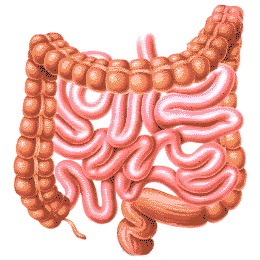Science:科学家发现淋巴毒素可诱导免疫球蛋白生成而支持肠道免
德国亥姆霍兹慕尼黑中心支持的一个国际研究组在新研究中,揭示淋巴毒素调控消化道免疫系统的功能机制,以及淋巴毒素控制肠道中免疫球蛋白生成过程。相关文章发表于2013年12月06日的《science》杂志上。

Science:科学家发现淋巴毒素可诱导免疫球蛋白生成而支持肠道免疫
淋巴毒素
淋巴毒素是一种细胞因子及细胞间信使,它在胃肠道免疫平衡中发挥着重要的功能。消化道免疫系统是由免疫细胞、免疫球蛋白(抗体)及肠道细菌组成,淋巴毒素对其起重要的调控作用。
肠道免疫系统
天然存在的肠道细菌(也被称之为肠道菌群)与由局部免疫细胞构成的免疫系统,共同维持了胃肠道的免疫平衡。免疫球蛋白A(IgA)是一种存在于粘膜上的重要物质,它使得一些病原体和毒素变得无害。
新研究表明
研究人员在新研究中,发现淋巴毒素控制A 了免疫球蛋白(IgA)生成,因此参与了免疫反应并影响了肠道菌群的常规组成。
研究小组证实,可溶性的淋巴毒素α(sLTa3)以及膜结合淋巴毒素β(LTa1b2),诱导了IgA生成,支持了机体的免疫反应。淋巴毒素是免疫细胞接触到病原体时形成的炎症信使。如果缺失这些淋巴毒素,会导致IgA生成减少或甚至终止,造成肠道菌群改变。
研究意义
德国亥姆霍兹联合会病毒学研究所Mathias Heikenwälder教授说:“这些研究结果为我们提供了关于肠免疫系统功能机制的一些新认识。炎症信使与免疫系统运作之间的关系帮助我们了解了肠疾病是如何发生的。这些见解对于某些免疫调节剂(例如TNF-α阻断剂)治疗也非常重要。因为它们能够结合可溶性的淋巴毒素,因此也影响了IgA的生成,因此破坏了免疫平衡。”
原文摘要:
Nonredundant Function of Soluble LTα3 Produced by Innate Lymphoid Cells in Intestinal Homeostasis
Andrey A. Kruglov, Sergei I. Grivennikov, Dmitry V. Kuprash, Caroline Winsauer, Sandra Prepens,Gitta Maria Seleznik, Gerard Eberl, Dan R. Littman, Mathias Heikenwalder, Alexei V. Tumanov,Sergei A. Nedospasov
Immunoglobulin A (IgA) production at mucosal surfaces contributes to protection against pathogens and controls intestinal microbiota composition. However, mechanisms regulating IgA induction are not completely defined. We show that soluble lymphotoxin α (sLTα3) produced by RORγt+ innate lymphoid cells (ILCs) controls T cell–dependent IgA induction in the lamina propria via regulation of T cell homing to the gut. By contrast, membrane-bound lymphotoxin β (LTα1β2) produced by RORγt+ ILCs is critical for T cell–independent IgA induction in the lamina propria via control of dendritic cell functions. Ablation of LTα in RORγt+ cells abrogated IgA production in the gut and altered microbiota composition. Thus, soluble and membrane-bound lymphotoxins produced by ILCs distinctly organize adaptive immune responses in the gut and control commensal microbiota composition.

